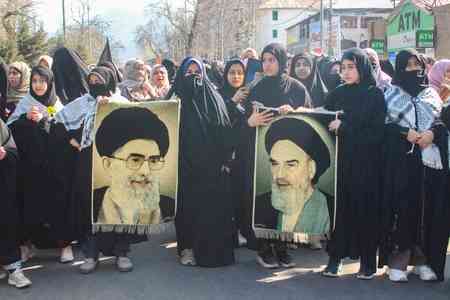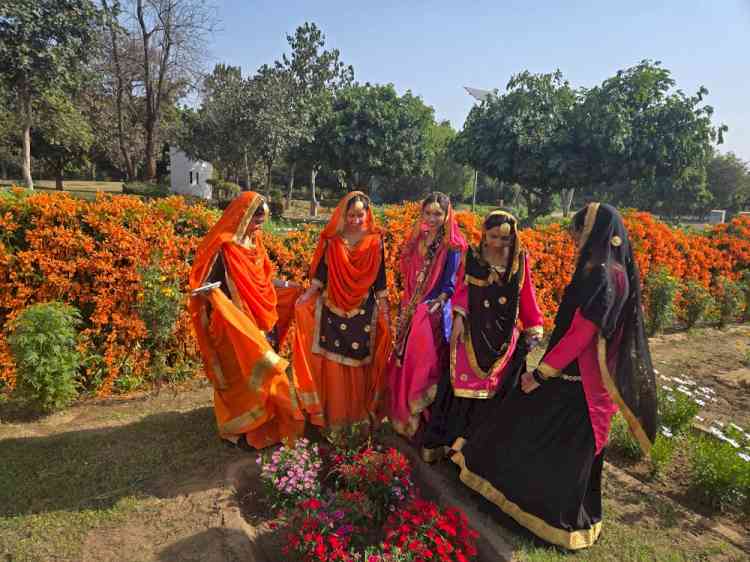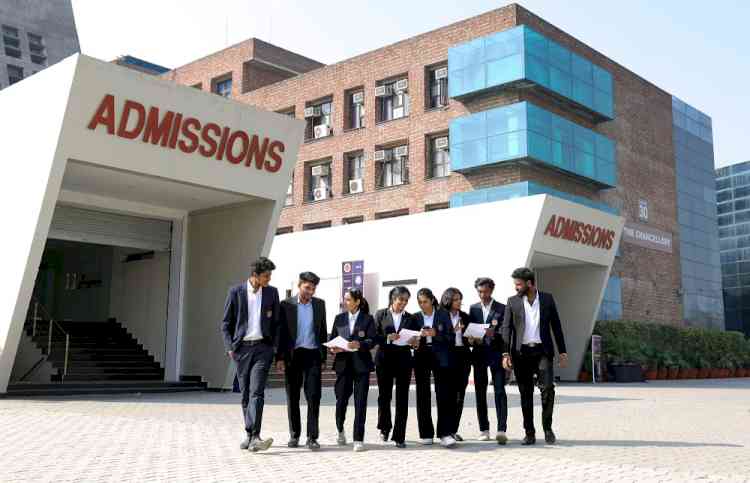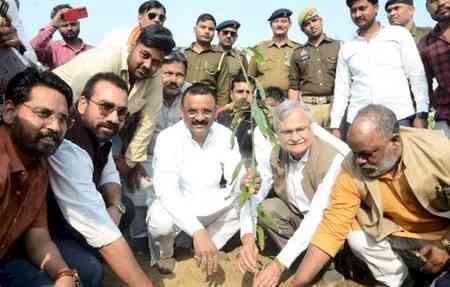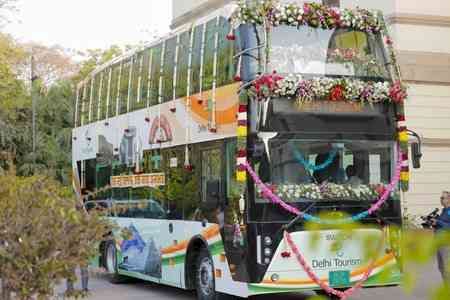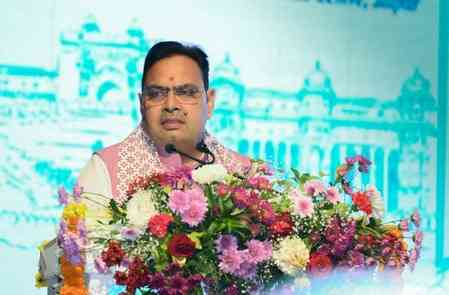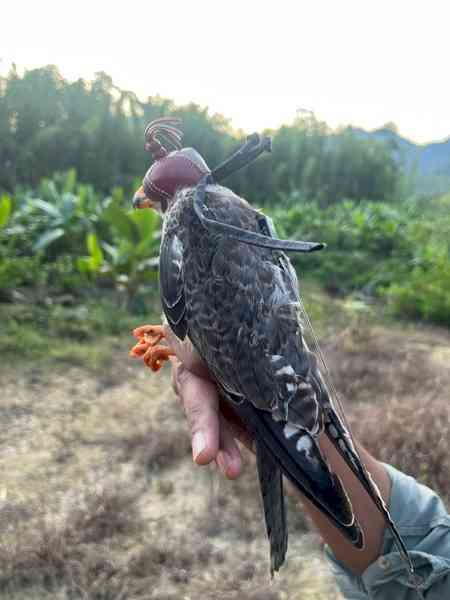DAV UNIVERSITY LAUNCHES PUNJAB'S FIRST PUBLIC HEALTH CLUB IN COLLABORATION WITH THE UNIVERSITY OF MEMPHIS (USA), PSCST, AND DST, GOVERNMENT OF INDIA
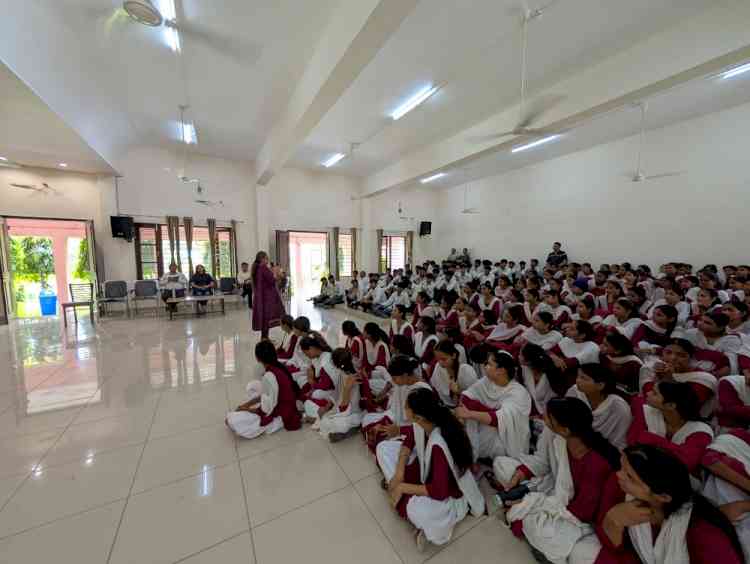
Jalandhar, August 5, 2025: In a landmark initiative aimed at fostering health awareness among school students and local communities, DAV University, in collaboration with the School of Public Health, University of Memphis (USA), launched Punjab’s first Public Health Club. The initiative is part of the project titled “Establishment of Public Health Clubs in Schools of Jalandhar,” funded by the Punjab State Council for Science and Technology (PSCST) and the Department of Science and Technology (DST), Government of India. Under this project, the first Public Health Club was inaugurated at Government Smart Senior Secondary School, Randhawa Masanda, Jalandhar.
During the inauguration ceremony, the Principal Investigator of the project, Dr. Tejinder Kaur, addressed the senior students of the school and elaborated on the objectives and importance of Public Health Clubs. She emphasized that selected student members of these clubs will serve as “Health Ambassadors,” disseminating vital health information within the community. She further added that these ambassadors would be sensitized to issues such as lifestyle diseases, environmental health, and health technology, and would actively contribute to community development.
Dr. Harpreet Walia from the Department of Botany and Environmental Sciences of DAV University spoke on the deep interconnection between environmental sustainability and public health. Through his inspiring words, he introduced students to the global concept of “One Earth, One Health, One Future,” highlighting that human health is inseparable from the health of the environment and biodiversity. He urged students to recognize the impact of pollution, deforestation, and unstable lifestyles on life and inspired them to become health leaders while taking care of the environment.
Following this, Dr. Sanjeev Sharma from the Department of Computer Science Applications conducted an engaging session on the growing role of Artificial Intelligence in healthcare. He acquainted students with several cutting-edge applications of AI being used for health monitoring, early disease detection, and public health surveillance. Dr. Sharma stressed that technology becomes more powerful when it is combined with awareness.
Mr. Deepak Jindal, Lecturer in Chemistry at the host school, also addressed the students with a thought-provoking discussion on the rising prevalence of lifestyle diseases, particularly hypertension. He explained the causes, symptoms, and long-term effects of uncontrolled blood pressure and related disorders. Highlighting the importance of preventive measures, he encouraged students to adopt healthy habits from an early age, such as regular physical activity, balanced nutrition, and mental wellness practices.
At the end of the event, 16 students were selected as founding members of the Public Health Club. These students will voluntarily lead health-related initiatives within their school and communities, bridging the gap between health awareness and practice in rural public health.
Speaking on the occasion, the Vice Chancellor of DAV University, Prof. Dr. Manoj Kumar, stated that this initiative by DAV University, committed to its social responsibilities, is highly significant as this is just the first phase where ten schools of the area is covered. He expressed heartfelt gratitude to Dr. Ashish Joshi from the School of Public Health, University of Memphis (USA), for conceptualizing this project and guiding the students. He said Dr. Joshi’s efforts have paved the way for strengthening international collaboration in promoting grassroots-level public health awareness.
Prof. Dr. Sanjeev Kumar Arora, Registrar, DAV University, extended thanks to the Punjab State Council for Science and Technology and the Department of Science and Technology, Government of India, for their unwavering support for this project. He also acknowledged the support of the District Education Officer and the Directorate of Public Instruction (DPI), Punjab, whose facilitation has made it possible to initiate the formation of Public Health Clubs across the state. He also applauded the efforts made by the principal of the school.



 Rajat Kumar
Rajat Kumar 
